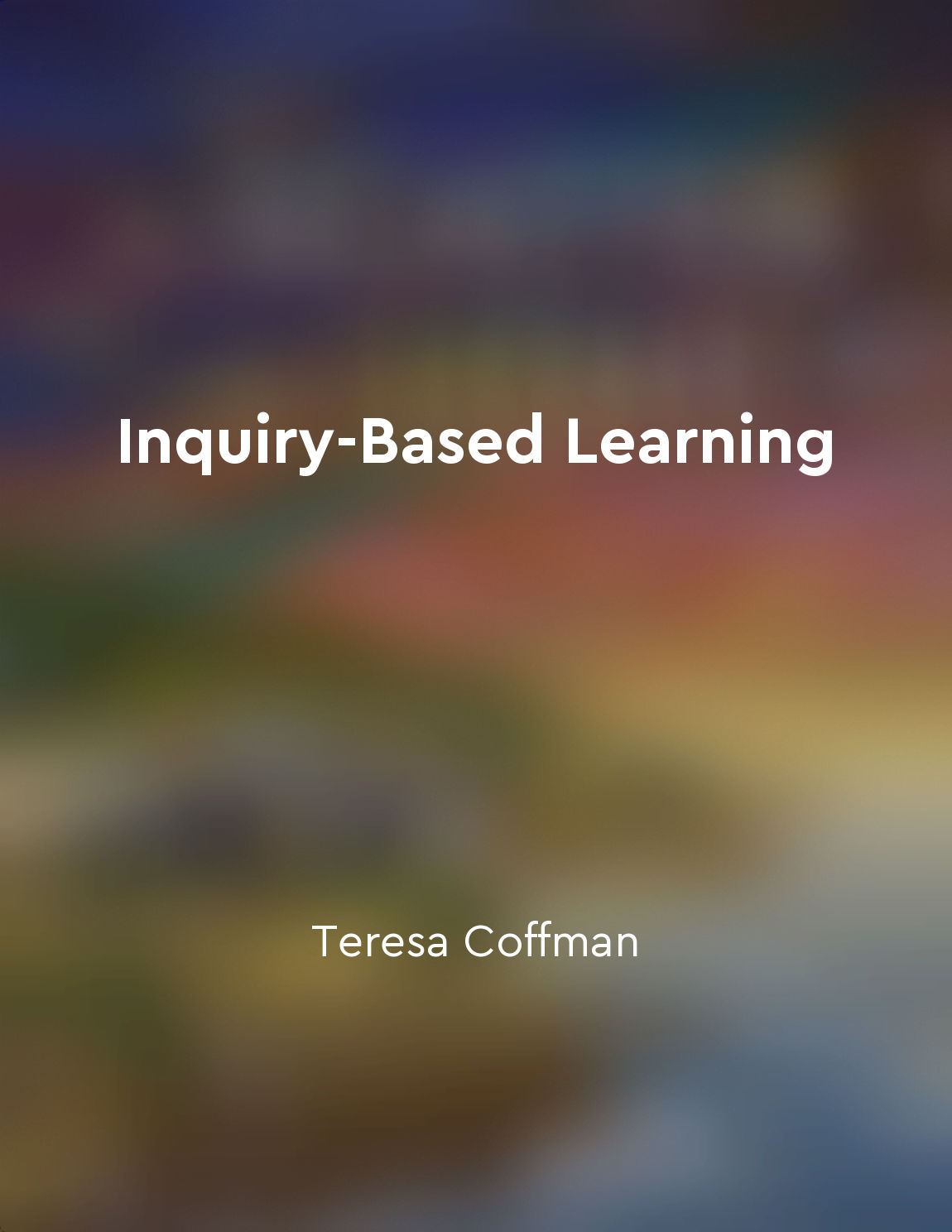Students apply knowledge in realworld contexts from "summary" of Inquiry-Based Learning by Teresa Coffman
The essence of inquiry-based learning lies in its ability to bridge the gap between theoretical knowledge and practical application. When students engage in authentic, real-world contexts, they are able to see the relevance and significance of the concepts they are learning. By applying their knowledge in meaningful situations, students not only deepen their understanding but also develop critical thinking skills and problem-solving abilities. This hands-on approach fosters a deeper level of engagement and motivation among students, as they see the direct impact of their learning on the world around them. In real-world contexts, students are encouraged to draw connections between what they have learned in the classroom and how it can be used in a practical setting. This process of application requires students to think creatively, make decisions, and adapt their knowledge to new situations. By engaging in this process, students are able to see the value of their learning beyond the confines of the classroom. They become active participants in their own learning, taking ownership of their education and developing a sense of agency and empowerment. Furthermore, applying knowledge in real-world contexts allows students to see the interdisciplinary nature of learning. Concepts from different subject areas can be integrated and applied in complex, multifaceted situations. This holistic approach to learning helps students make connections between seemingly unrelated topics and develop a more comprehensive understanding of the world. By engaging in cross-curricular activities and projects, students are able to see how different disciplines intersect and interact, leading to a more enriched and nuanced view of the world.- The concept of applying knowledge in real-world contexts is central to the philosophy of inquiry-based learning. By immersing students in authentic, meaningful experiences, educators can help them develop the skills and mindset needed to thrive in an ever-changing world. Through hands-on, experiential learning, students not only deepen their understanding of academic concepts but also cultivate the critical thinking, problem-solving, and adaptability skills that are essential for success in the 21st century.
Similar Posts
Fostering a culture of curiosity and exploration
Creating a culture that encourages curiosity and exploration is essential for fostering a learning organization. This culture s...
Emphasize the value of critical thinking
In recognizing the importance of critical thinking, we must first understand that it is not simply a skill or tool to be used i...
A focus on rigorous curriculum often leads to superficial learning and memorization
The idea that a rigorous curriculum can sometimes result in superficial learning and mere memorization is a critical point that...
Foster a sense of community within the classroom
Creating a sense of community within the classroom is essential for establishing a positive and productive learning environment...
Reflection is essential for enhancing creativity
Reflection plays a crucial role in the process of enhancing creativity. When students take the time to reflect on their experie...
The power of PBL lies in its transformative impact on students
Problem-based learning (PBL) is a teaching methodology that has the potential to truly transform students’ learning experiences...
PBL encourages collaboration among students
Problem-based learning (PBL) is a pedagogical approach that encourages collaboration among students. This collaborative aspect ...
It allows for multiple perspectives in problemsolving
When engaging in problem-based learning, students are presented with complex, real-world problems that require critical thinkin...
Encouraging collaboration sparks creativity in students
Collaboration plays a crucial role in sparking creativity in students. When students work together, they are able to bounce ide...


